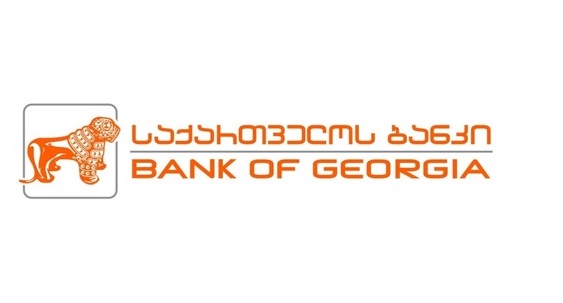Marriage registration in Georgia is becoming increasingly popular among foreign couples due to the simplicity of the procedure, quick processing times, and picturesque locations for ceremonies. This article provides a detailed overview of the marriage registration process in Georgia, including required documents, regulations, costs, fees, and real-life reviews from couples who have already gone through the process.
Benefits of Marriage Registration in Georgia
- Minimal Bureaucracy: A fast registration process without unnecessary formalities. For example, most couples receive their marriage certificate on the same day.
- Document Recognition: Georgian marriage certificates are recognized in more than 50 countries, including Russia, the European Union, and the United States.
- Accessibility: The procedure is available to citizens of all countries, regardless of their residence.
- Scenic Locations: Georgia is famous for its beautiful spots, perfect for wedding ceremonies. For instance, the town of Sighnaghi is often called the “City of Love” for its romantic atmosphere.
- Combine the Pleasant with the Practical: A trip to Georgia can also be an opportunity to open a bank account or register a sole proprietorship.
Marriage Rules in Georgia for Foreigners
- Foreigners can register marriage without residing in the country.
- No visa is required for citizens of 94 countries.
- Official registration can be completed within one day.
- Minimum age is 18 years.
- No mandatory medical examination is required.
Documents Required
- Passports of the Spouses: Must be valid for at least six months from the date of application. Originals and notarized translations into Georgian are required.
- Certificate of Divorce or Spouse’s Death (if applicable): These documents must be issued no more than six months before the application if required by the legislation of the home country.
- Notarized Translations: All official documents must be translated into Georgian by certified specialists.
- Witness Information: Two witnesses whose documents must also be valid at the time of registration.
Marriage Registration Process in Georgia
- Document Preparation: Collect, translate, and notarize all required documents.
- Application Submission: Visit the House of Justice to submit the application.
- Ceremony Format Selection: Couples can choose between an official or off-site ceremony.
- Marriage Certificate Issuance: The certificate is issued on the same day as the registration.
- Apostille: Obtain an apostille for international recognition of the certificate.
- Translation of the Marriage Certificate: In some cases, the issued certificate must be translated into the language of the home country.
Costs of Fees and Additional Services
- Government Fee for Marriage Registration: 75 to 150 GEL, depending on urgency.
- Apostille: Around 50 GEL per document; the procedure takes 2–5 business days.
- Notary Services: Translation of one document into Georgian costs 30 to 100 GEL, depending on the complexity of the text.
Examples of Agency Service Costs
- Georgia Wedding Agency: Service packages start at $450, including document translation, assistance at the House of Justice, providing witnesses, and apostille.
- Tbilisi Marriage Services: Prices from $600, including organization of off-site ceremonies and a photoshoot.
- Love in Georgia: Premium packages from $1,200 with custom ceremony planning, decor, and transportation.
Real-Life Reviews
- Olga and Mikhail, Russia: “The marriage registration in Georgia was quick and hassle-free. We contacted an agency that helped with document translation and accompanied us to the House of Justice. Within two days, we had our certificate with an apostille!”
- Maria and James, UK: “We chose Sighnaghi, the city of love. The ceremony was held in a cozy atmosphere, and the staff at the House of Justice were very friendly. The entire process took just one day, and we were pleasantly surprised by the affordability of the services.”
- Anna and Karl, Germany: “The procedure was simpler than we expected. We were initially worried about the documents, but the agency organized everything perfectly. After registration, we spent a few days in Georgia’s stunning mountains—it was amazing!”
- Sophia and Luca, Italy: “We faced an issue with missing documents, but the agency quickly found a solution. Everything went smoothly, and our ceremony in Tbilisi was simply magical.”
- Emma and Liam, Australia: “Marriage registration in Georgia was our dream. At first, the process seemed complicated, but with the help of local experts, it turned out to be easier than we thought. We highly recommend Georgia to everyone!”
Useful Tips
- Plan Ahead: It is best to arrive in Georgia a few days before the ceremony.
- Check Your Documents: Ensure that all translations are notarized.
- Choose a Location: Georgia offers numerous picturesque spots for off-site ceremonies.
Wedding Traditions in Georgia
A wedding in Georgia is not just the union of two people but an important cultural and social event filled with unique customs and traditions. Many of these traditions date back to ancient times and have been passed down through generations. Below are the key stages and features of a Georgian wedding.
1. Matchmaking (“Sheshvloba”)
Matchmaking is one of the first and most significant stages of the wedding process.
- Role of Matchmakers: Previously, matchmakers were often senior family members or respected relatives of the groom. Their task was to negotiate the marriage between the two families.
- Family Agreement: The parents of the groom and bride would discuss not only the wedding but also the conditions of their future married life, often including the dowry and other aspects.
- Symbolic Gifts: The groom could give gifts to the bride and her family as a sign of his serious intentions.
2. Engagement (“Nakhinoba”)
After successful matchmaking, an official engagement takes place.
- Announcement of Engagement: Families announce their decision to marry, which was traditionally symbolized by a shared meal between the two families.
- Gifts for the Bride: The groom gives various gifts to the bride, such as jewelry, clothing, or money. Sometimes a ring is given, resembling Western engagement traditions.
- Blessing Rituals: Parents bless the couple, and senior family members offer advice and wishes for happiness.
3. Wedding Preparations
Preparations for the wedding are one of the most important and often costly processes.
- Organizing the Celebration: A traditional Georgian wedding is a grand event with numerous guests (sometimes up to several hundred).
- Inviting Guests: Invitations were traditionally made in person, though today they can be done via phone or social media.
- Venue Selection: Weddings are often held in banquet halls, restaurants, or at home if space allows.
- Decor and Attire: A Georgian bride may wear a traditional white dress or a national costume that highlights her cultural heritage.
4. Wedding Day (“Kortsiloba”)
The wedding day is the central stage of the marriage, accompanied by many rituals and celebrations.
- Religious Ceremony: Most Georgians are Orthodox Christians, so a church wedding is a vital part of the ceremony. The bride and groom receive blessings from the priest.
- Civil Registration: In addition to the church wedding, the couple must officially register their marriage at the House of Justice.
- Bride Kidnapping: In some regions, there is a tradition of “bride kidnapping,” where the groom “steals” the bride (with her consent). Historically, this was necessary if families opposed the marriage, but today it is mostly symbolic.
- Journey to the Bride’s Home: The groom, along with friends and relatives, travels to the bride’s home to take her. The bride’s family may “block” the groom’s entry, requiring him to “pay a ransom” with gifts, jokes, or symbolic challenges.
- Festive Feast: The wedding feast is a critical element of the wedding. A large banquet is arranged with traditional Georgian cuisine and wine, often accompanied by performances from musicians and dancers.
5. Role of the Tamada
The Tamada is the central figure of the wedding celebration.
- Who is the Tamada? The Tamada is the host and organizer of the celebration who oversees order and makes toasts. They manage the entertainment and ensure the event flows smoothly.
- Toasts and Speeches: Georgian toasts are a tradition in themselves. The Tamada starts with wishes for the newlyweds, followed by other guests taking turns giving their toasts.
- Guest Participation: Guests can sing, dance, and join in the toasts. Georgian folk songs and dances, such as the lezginka, are highlights of the wedding.
6. Dances and Music
- Georgian Music: Traditional Georgian music accompanies the wedding from beginning to end. This can include folk melodies or modern interpretations of traditional songs.
- Dances: Guests and newlyweds perform Georgian folk dances, such as the lezginka, which symbolizes bravery and strength. Dancing is a way to show respect for the culture and the guests.
7. Symbolic Rituals
- Breaking Dishes: In some regions, a plate is broken as a symbol of happiness and prosperity.
- Bread and Wine: Bread and wine are often used in rituals as symbols of wealth and abundance. The bride and groom may drink wine from the same vessel.
- Candles and Talismans: During the church ceremony, the couple holds candles symbolizing purity and spiritual connection.
8. Post-Wedding Customs
- Couple’s Residence: Traditionally, the bride moves into the groom’s house. In some regions, this is accompanied by a symbolic threshold ritual.
- “Second Day” Celebration: In Georgia, it is common to hold a second day of celebrations with close relatives and friends.
- Symbolic Offerings: After the wedding, relatives may send the couple baskets of food and sweets as a symbol of abundance and prosperity.
Traditional Elements of a Georgian Wedding
| Element | Description |
|---|---|
| Wine | Symbol of joy, abundance, and happiness. |
| Bread | Symbol of prosperity and wealth. |
| Jewelry | The groom gifts the bride gold jewelry. |
| Candles | Symbol of spiritual purity during the blessing. |
| Breaking Dishes | A ritual for happiness and good fortune in marriage. |
| Bride Kidnapping | An ancient tradition, now mostly symbolic. |
Conclusion
Marriage registration in Georgia for foreigners is a simple, accessible, and romantic way to formalize a relationship. Couples worldwide choose Georgia for its lack of bureaucratic complexities, minimal processing times, and affordable costs. If you want to create unforgettable memories and receive an official document recognized in many countries, marriage registration in Georgia is the perfect choice!



